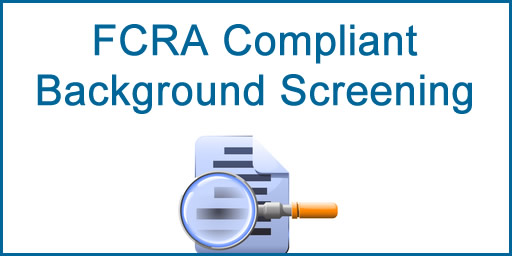The ongoing COVID-19 pandemic has presented some challenges for employers when it comes to performing background checks. Closures, such as court closures, and other delays have made it difficult for employers to have these screenings done in a timely manner. However, these screenings are still a crucial part of the hiring process. Employers who are planning to hire new staff during the COVID-19 pandemic should keep the following information in mind.

Employment background checks, which include targeted screening for past criminal offenses, help employers provide a safe working environment for both workers and customers. These background checks also provide a way for employers to practice due diligence, which might help reduce their risk of liability if an incident involving an employee occurs on company property.
Importance of Employment Background Checks
The current COVID-19 pandemic has resulted in many businesses having employees work from home, which helps lower the risk of incidents, such as workplace violence or employee theft. However, employers should still plan on conducting background screenings before hiring new employees. Innovative employment screening is an important part of helping employers make informed hiring decisions.
Screening Delays and Problems
The COVID-19 pandemic has caused several places to temporarily close due to local lockdowns or shelter-in-place orders. Some of the places that have had to close or limit their usual activities include courts, which can have an impact on obtaining employment background check results. Employers in areas where local courts have been closed, for example, might experience significant delays in getting screening results. This might cause some employers to consider hiring new employees on a provisional basis if possible.
Provisional hiring involves going through with hiring a new employee before the background check has been completed. There are certain risks associated with this hiring process that employers should be aware of, as well as legal obligations, such as adverse action under the Fair Credit Reporting Act. Employers who choose provisional hiring as a temporary solution during the COVID-19 pandemic will need to devise a plan on how to handle potential cases involving criminal offenses that come up on completed background screenings after new employees have begun working.
Solutions for Screenings During the COVID-19 Pandemic
Employers who plan on hiring new employees during the COVID-19 pandemic have solutions available to ensure timely and thorough results. Companies that perform employee background checks, including criminal background screenings, can provide reliable and prompt results to help employers make smart and safe hiring decisions. For more information on employee background checks, please contact Screening Intelligence.
Source: https://www.mspb.gov/studies/adverse_action_report/5_DifferentTypes.htm
Disclaimer Statement: All information presented is never intended as legal advice and is for information purposes only.






